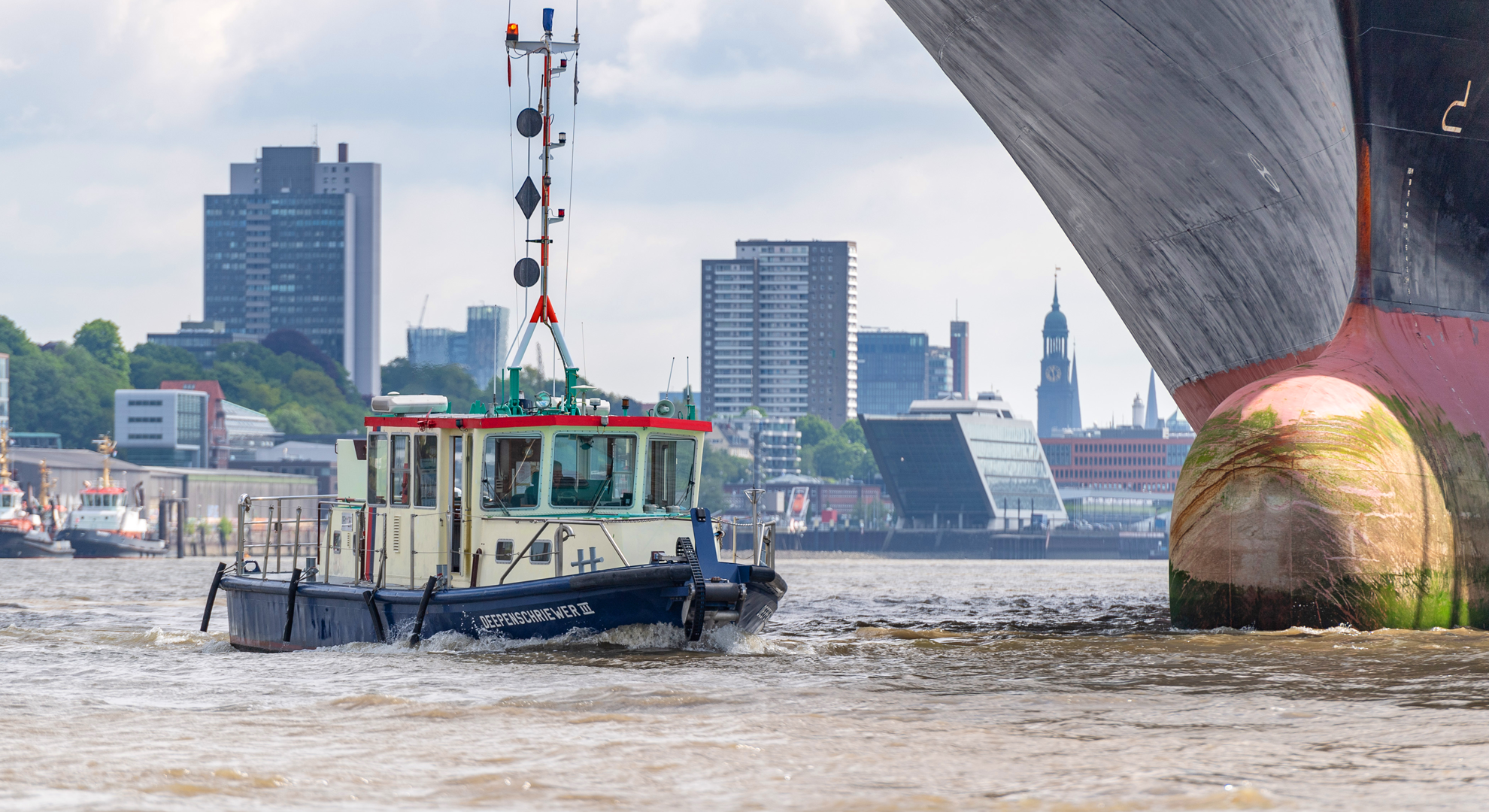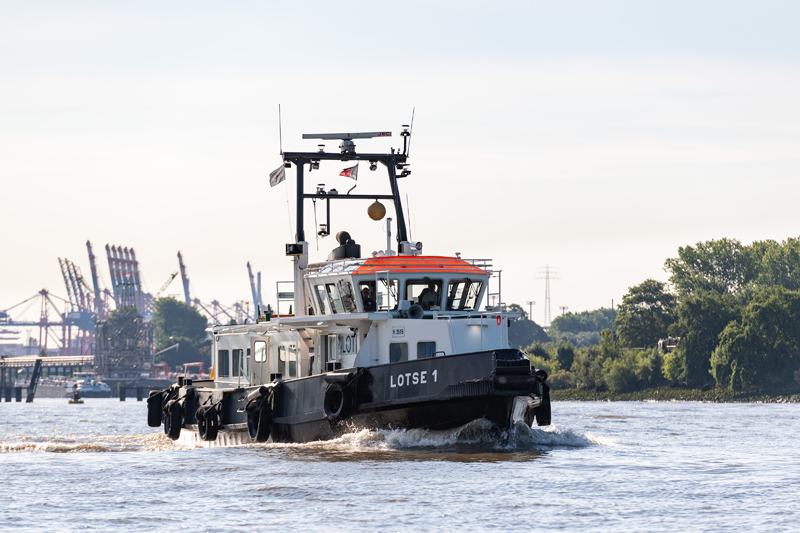Diving straight into IT projects
Two software developers at Eurogate report their experience ...

From the waves of the river Elbe to controlling the flow of personnel: Melvin Siebold has been working as staff dispatcher at Flotte Hamburg, a subsidiary of the Hamburg Port Authority (HPA), since 1 January. He now coordinates the deployment of nautical personnel, the profession he previously belonged to. Although he is still in the induction phase, one thing is already clear: the new role challenges him in just the way he wanted. The trained port skipper worked in holiday and illness cover at Flotte Hamburg until the end of 2023. If someone from the team was absent, the skipper would step in. Siebold can operate each of the 45 multifunctional vessels of the fleet. His job at the port was therefore very varied.
„Everything is,
still fresh,
but I enjoy
the work."Melvin Siebold
Personnel Dispatcher
at the Hamburg Fleet
“We have survey vessels, pilot transferers and tuggers, and we need to know how they manoeuvre in the special fairway of the Elbe,” he says. The sounding vessels are needed to maintain water depth; the pilot transfer vessels bring the Elbe and port pilots to and from the ships around the clock; icebreakers keep the Elbe free in winter and the tuggers transport the dredge barges to and from the suction station.

Siebold’s day would usually begin at six in the morning and end at six in the evening. Sometimes, he would only know a day before what he would be doing the next day. Normally, in the case of holiday cover, he would know one or two weeks in advance. “It was very exciting for me to pilot different vessels. My work was quite varied.”
The greatest challenges for a skipper are dependent on the ship. Depending on the drive type, the skipper has to know what to do, as the Elbe can have up to two metres per second of current. “When I drove out on the Elbe, I could tell immediately how the ship would suddenly tilt as the conditions of the currents changed,” the 32-year-old explains.
Siebold operated port vessels and barges. On board, he would have to use the radio or navigation instruments, for example. As a skipper, he also needed to know how to moor and cast off as well as unhitch and tether the vessels. He could make a towing or couple connection and drive. He knows the signals and navigation aids and is proficient in the relevant knots. “The weather, particularly visibility and wind, also play a big role, as does the space available for a turning manoeuvre, for example.” He especially liked being dispatched as holiday and illness cover. “That meant that I was needed.” While the work was not monotonous, after ten years on the water Siebold wanted a change of perspective and more mental work. “Everything is still fresh, but I enjoy the work.”
The young man has felt a connection to the water since his childhood, through sports like sailing and surfing. He got the idea of becoming a port skipper from a neighbour, and his teacher at vocational college put him in touch with his training workplace. Siebold progressed to become a trained port skipper, attained all the necessary qualifications and certificates, and then spent four years working as a deck hand on bunker vessels. “But all in all, I found that too boring,” he recalls.
„Siebold can operate
each of the 45
multifuntional
vessels of the fleet"
He switched courses to tugging, until he finally found out through an acquaintance that Flotte Hamburg was looking for skippers. He applied, got accepted and spent three years working in holiday and illness cover. Does Siebold miss working on the water? So far, he doesn’t, he says – particularly as his new workplace is on a pontoon at the port. “Thanks to the cycle of the tide, I still feel the movement of the water,” he notes.
Since a number of allowances that he got as a skipper no longer apply, Siebold earns a little less as staff dispatcher. But the fact that he can finish work in the office earlier and doesn’t have to work on the weekend makes up for this. For him, it’s more important to have the opportunity at Flotte Hamburg to develop professionally and he is already looking forward to having more tasks, such as recruiting new employees. “Flotte Hamburg is still looking for skippers.”
Requirements: Completed vocational training as a ship mechanic, port skipper or inland sailor. Experience in tugging and moving barges and vessels. Experience with different drive systems. A valid inland skipper “A” certificate (or EU certificate) or a nautical certificate under STCW, the international convention on standards for the training, issuance of certificates of competency and the watchkeeping of seafarers.
A valid UKW radio certificate (UBI) and valid radar certificate. A high degree of flexibility, 24/7 operations in some cases, including on weekends and public holidays. Ideally a holder of a driving licence (category B).
Softskills: Team skills, considerate conduct, independent style of working as well as a friendly demeanour are traditionally considered aspects of good seamanship.